Diwali, also known as Deepavali, is one of the most beloved and widely celebrated festivals in Hinduism, cherished by millions worldwide. This “Festival of Lights” isn’t just a cultural tradition; it’s a symbol of the triumph of light over darkness, knowledge over ignorance, and hope over despair. Rooted in Hindu mythology and evolving over centuries, Diwali holds special significance not only for Hindus but for individuals and communities across varied cultures who join in the festivities each year. But what exactly is Diwali, and how can you immerse yourself in its joyous celebration?
What is Diwali?
Diwali – A Festival of Light and Victory
Diwali, or Deepavali, comes from the Sanskrit words “deepa,” meaning “light,” and “avali,” meaning “row” or “series.” Hence, Deepavali is aptly described as a “row of lights.” Celebrated in late October or early November, Diwali lasts for five days, with each day bringing its unique set of traditions, rituals, and meanings.
The festival symbolizes the victory of good over evil, light over darkness, and knowledge over ignorance. In Hindu tradition, Diwali commemorates the return of Lord Rama, his wife Sita, and his brother Lakshmana to their kingdom of Ayodhya after a 14-year exile and a victorious battle against the demon king Ravana. The people of Ayodhya welcomed them by lighting rows of oil lamps, and this practice has continued as the central theme of Diwali.
But Diwali is not only a religious celebration—it’s also a cultural one that transcends faiths. Jains commemorate the attainment of “moksha” or liberation by Lord Mahavira on this day, while Sikhs observe it as Bandi Chhor Divas, marking the return of Guru Hargobind Ji from imprisonment. Buddhists in some regions also celebrate Diwali, honoring the teachings and enlightenment of Lord Buddha.
The Five Days of Diwali and Their Significance
The Journey from Darkness to Light Over Five Special Days
Each day of Diwali has a distinct significance, with specific rituals and practices that illuminate the festival’s deeper meanings. Here’s an overview of each day and its traditions:
- Day 1 – Dhanteras: The festival begins with Dhanteras, a day dedicated to wealth and prosperity. People clean their homes, buy gold, and purchase new kitchenware as a gesture of inviting wealth into their lives. Devotees also worship Lord Dhanvantari, the deity of health and healing.
- Day 2 – Naraka Chaturdashi: Known as Choti Diwali or Naraka Chaturdashi, this day signifies the destruction of the demon Narakasura by Lord Krishna. Homes are decorated, and small rangolis (colorful patterns) are created at the entrance to ward off evil.
- Day 3 – Lakshmi Puja (Main Diwali Day): This is the most important day of Diwali. Families gather to worship Goddess Lakshmi, the goddess of wealth and prosperity, lighting diyas (lamps) and candles around the house. This tradition stems from the belief that Goddess Lakshmi will visit well-lit homes and bless the inhabitants with prosperity.
- Day 4 – Govardhan Puja: Govardhan Puja marks the fourth day, symbolizing Lord Krishna’s protection of the villagers from a devastating storm by lifting the Govardhan Hill. Offerings are made to the divine, and families enjoy festive meals together.
- Day 5 – Bhai Dooj: The fifth and final day, Bhai Dooj, celebrates the bond between brothers and sisters. Siblings come together, sisters pray for their brothers’ long lives, and brothers give gifts in return.
Each day brings with it a unique opportunity for reflection, celebration, and togetherness, solidifying the essence of Diwali as a festival that bridges the divine with daily life.
How to Celebrate Diwali: Traditions and Modern Practices
Diwali Essentials – Lights, Sweets, and Celebrations
Diwali is celebrated with rituals that honor ancient customs while adapting to modern lifestyles. Here’s how you can join in on this vibrant celebration, regardless of your background:
- Decorate Your Home with Lights
The hallmark of Diwali is illumination. Traditional oil lamps or diyas, candles, and even modern LED lights are used to decorate homes, creating a bright and welcoming environment. You can place these lights on windowsills, doorsteps, and pathways, symbolizing the dispelling of darkness and ignorance. - Create Rangolis
Rangolis, intricate patterns made from colored powders, flowers, or rice, adorn the entrances of homes during Diwali. This traditional art form welcomes guests and serves as a symbol of good fortune and positivity. Designing rangolis can be a family activity, encouraging creativity and bonding. - Exchange Sweets and Gifts
Diwali is a time for giving and sharing. Exchanging sweets like laddoos, barfis, and kaju katli is an age-old tradition. These sweets symbolize the sweetness of relationships and well-wishes for prosperity. It’s also common to give gifts, which can range from traditional items like clothing to modern gadgets. - Perform Lakshmi Puja
The heart of Diwali celebrations is the Lakshmi Puja, where families gather to honor Goddess Lakshmi and seek her blessings for wealth, health, and happiness. Traditionally, this ritual involves lighting diyas, offering flowers and sweets, and reciting prayers. - Fireworks and Festive Feasts
Fireworks light up the sky on Diwali night, adding an extra layer of excitement and joy. Many families also prepare a grand feast, featuring a range of traditional dishes that vary by region, such as samosas, pakoras, biryani, and festive sweets.
For those looking to celebrate Diwali in its full spirit, spiritualguru.lk offers a selection of spiritual accessories that can enhance your festive experience. Whether it’s diyas, idols, or decor items, these items can help you bring the festival’s authenticity into your own space.
Diwali’s Deeper Meaning: Reflection and Renewal
Diwali as a Journey of Personal Growth
While the festival is marked by joyous festivities, Diwali also provides a time for introspection and growth. Hindus believe in using Diwali as an opportunity to reflect on the past year, forgive those who have wronged them, and set intentions for the year ahead. Cleaning and decorating the home is symbolic of cleansing the mind, inviting positivity, and preparing oneself for new beginnings. The lights represent the inner light within each individual, reminding people to nurture it and spread kindness.
This perspective isn’t limited to Hindus alone; Diwali’s universal themes of light, wisdom, and compassion make it a holiday that anyone can appreciate. By embracing these values, Diwali encourages us all to find the light within ourselves and use it to benefit others.
Diwali’s Modern Relevance and Environmental Considerations
In recent years, there has been a growing awareness of the environmental impact of traditional Diwali practices, especially concerning fireworks. While fireworks are a longstanding tradition, many communities have shifted to more eco-friendly celebrations, such as:
- Using biodegradable decor and natural rangoli powders
- Choosing eco-friendly diyas made from clay instead of plastic
- Opting for soundless or low-pollution fireworks
These eco-friendly adaptations honor Diwali’s spirit without compromising environmental health. Embracing these practices can help us celebrate Diwali responsibly, ensuring that this beloved festival continues to thrive for generations to come.
Embracing Diwali in Its Full Splendor
Diwali is a festival that embodies the resilience of the human spirit and the celebration of shared values. Whether you’re lighting diyas, gathering with loved ones, or offering prayers to Goddess Lakshmi, Diwali provides a unique opportunity to reflect on life’s deeper meaning. Through light, love, and kindness, we can make the world a brighter place, just as Lord Rama brought light back to Ayodhya.
If you’re looking to make your Diwali celebration even more special, consider exploring spiritual accessories at spiritualguru.lk. From diyas to idols and decorative items, these can help you bring an authentic touch to your celebration and deepen your connection with the spirit of Diwali.
May your Diwali be filled with light, laughter, and blessings. Happy Diwali!

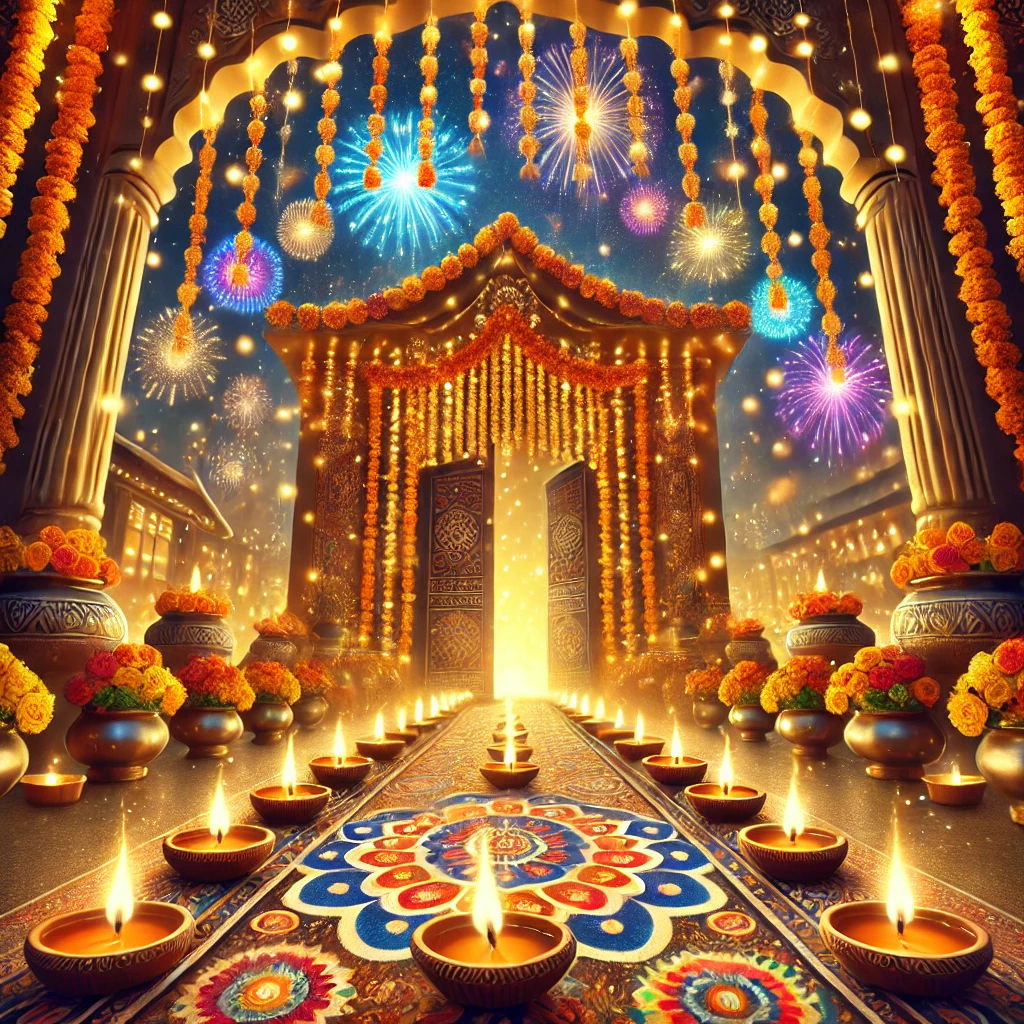
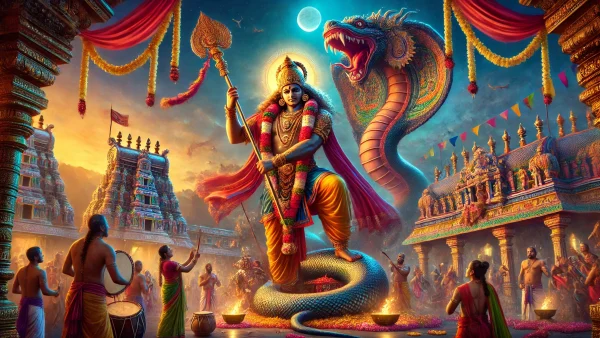
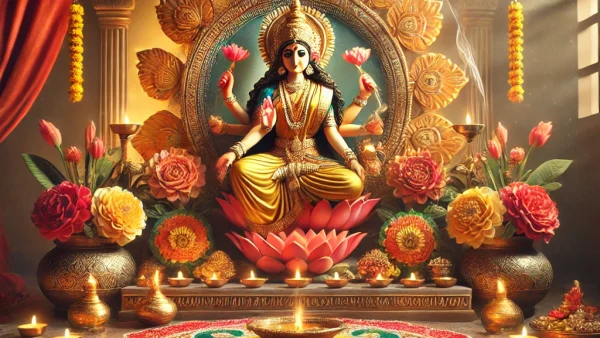
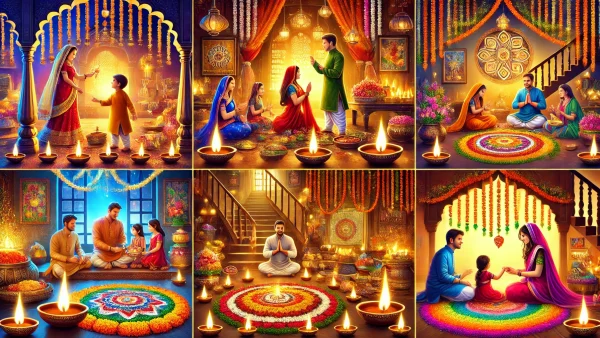
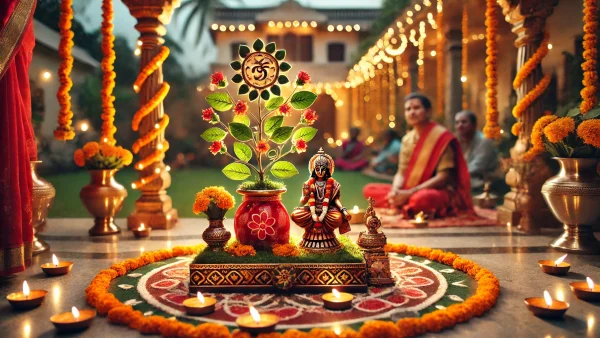
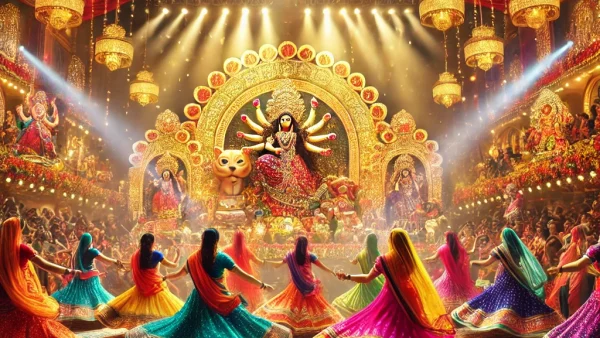
Pingback: Five Days of Diwali: What Each Day Represents - Spiritual Guru
Pingback: Who Is Goddess Lakshmi? Symbol of Wealth, Prosperity - Spiritual Guru